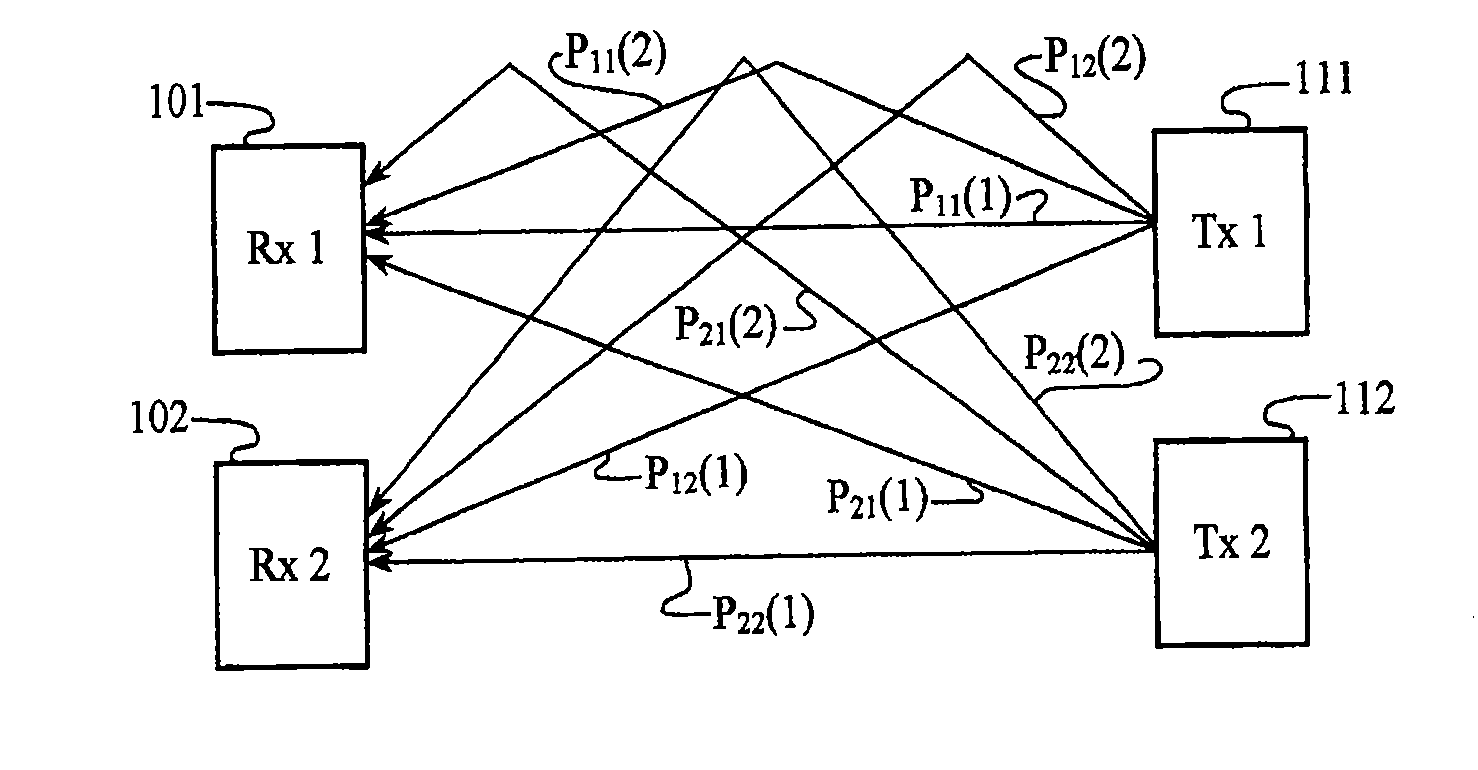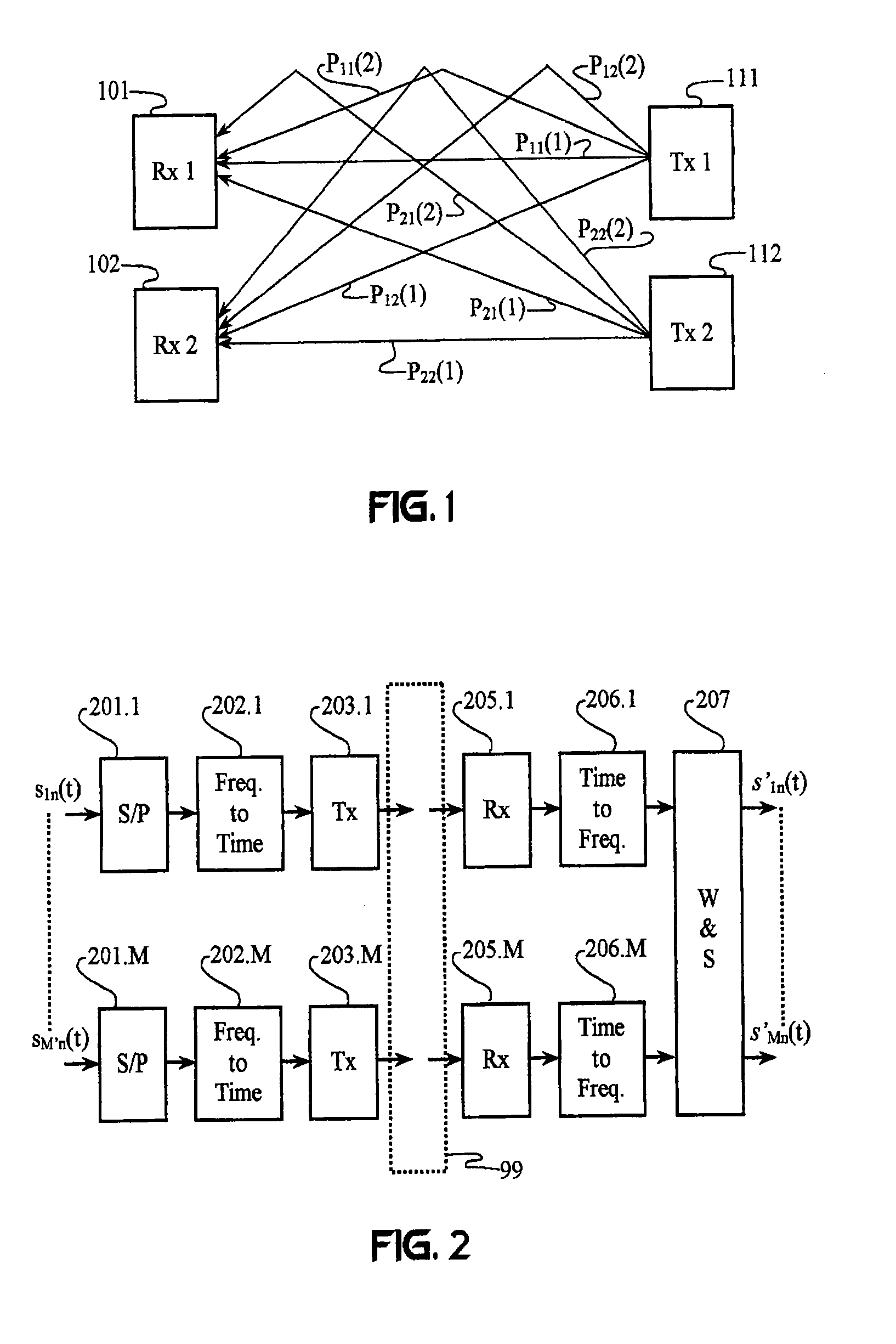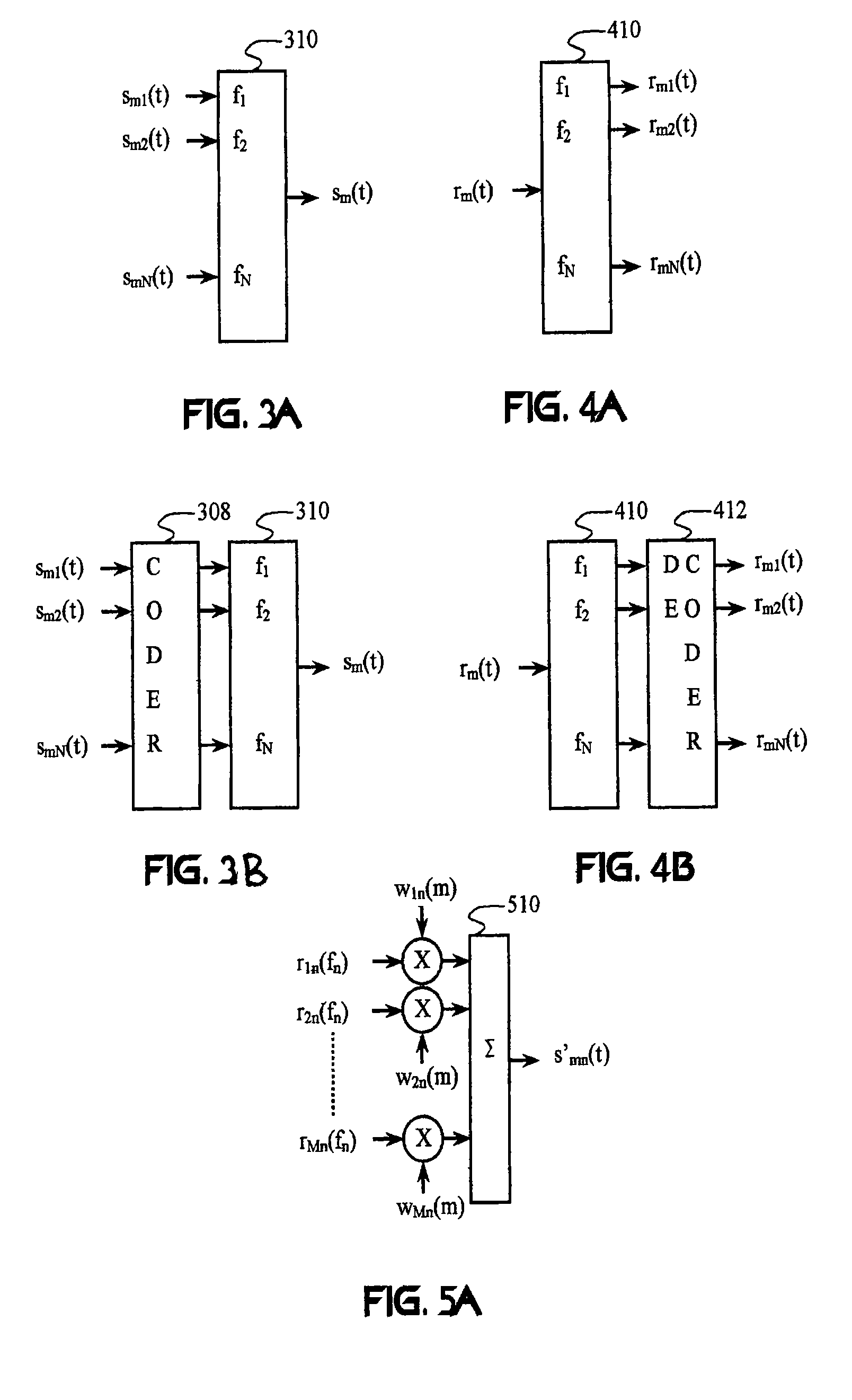Cancellation Systems for Multicarrier Transceiver Arrays
a transceiver array and multi-carrier technology, applied in multiplex communication, orthogonal multiplex, wireless commuication services, etc., can solve the problem of hoover not compensating for phase-variation, amplitude-dependent pick-up response amplitude-dependent, poor cancellation over a broad frequency range, etc., to improve channel compensation, improve bandwidth efficiency of point-to-point, and improve performance
- Summary
- Abstract
- Description
- Claims
- Application Information
AI Technical Summary
Benefits of technology
Problems solved by technology
Method used
Image
Examples
Embodiment Construction
[0038] In the description of the preferred embodiments, it is assumed that the reader has a familiarity with electromagnetic cancellation, as described in U.S. Pat. Nos. 6,211,671, 6,208,135, and 5,523,526, which are all incorporated by reference.
[0039]FIG. 1 illustrates a plurality of spatially separated receivers 101 and 102 adapted to be responsive to electromagnetic signals transmitted by a plurality of spatially separated transmitters 111 and 112. For the purpose of describing the function of a cancellation system, each receiver 101 and 102 is responsive to signals arriving along two transmission paths from the transmitters 111 and 112.
[0040] Transmitter 111 transmits a first signal s1(t) that arrives at receiver 101 from a line-of-sight transmission path P11(1) and a reflected (and thus, delayed) path P11(2). Similarly, transmitter 112 transmits a second signal s2(t) that arrives at receiver 101 from a line-of-sight transmission path P21(1) and a reflected (and thus, delayed...
PUM
 Login to View More
Login to View More Abstract
Description
Claims
Application Information
 Login to View More
Login to View More - R&D
- Intellectual Property
- Life Sciences
- Materials
- Tech Scout
- Unparalleled Data Quality
- Higher Quality Content
- 60% Fewer Hallucinations
Browse by: Latest US Patents, China's latest patents, Technical Efficacy Thesaurus, Application Domain, Technology Topic, Popular Technical Reports.
© 2025 PatSnap. All rights reserved.Legal|Privacy policy|Modern Slavery Act Transparency Statement|Sitemap|About US| Contact US: help@patsnap.com



